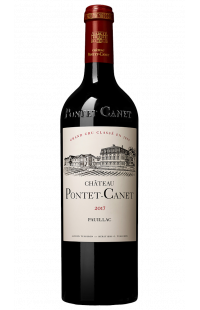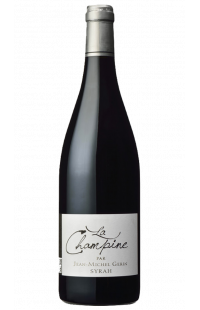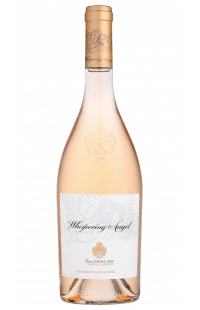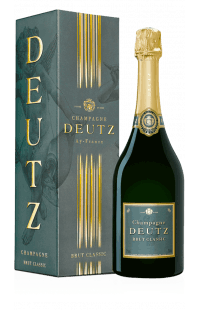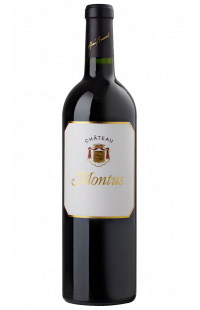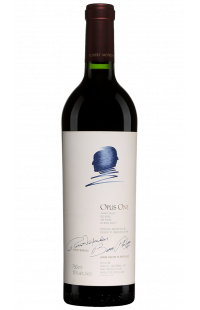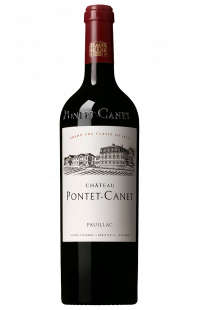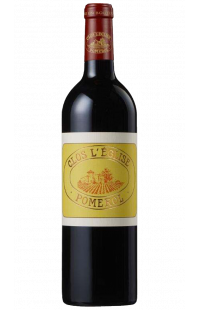- Menu
- All our wines
- Bordeaux
-
Rhône
-
Burgundy
-
Rosés Wines
-
Champagne
- France
-
World
- PRIMEURS
- ORGANIC WINES
Clos l’Église
There are 2 products.
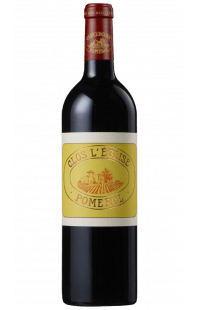
Available in
- Bottle (75cl)
- 99.00€ / bottle- Case of 6 bottles (75cl)
95.00€ / bottleTASTING NOTES
Wine Advocate
93
J. Suckling
96-97
Specifications
Clos l'Eglise
Clos l'Église is a prestigious wine estate located in Pomerol, one of the most renowned appellations in the Bordeaux region. Its history spans several centuries, and its unique terroir makes it a key reference for lovers of great Bordeaux wines. Covering an area of 6 hectares, the vineyard is planted on clay-gravel soils rich in iron deposits, a feature that gives Clos l'Église wines their distinctive character.
The estate is currently managed by Hélène Garcin-Cathiard and her husband, Patrice Lévêque, who continue the passionate work initiated by Sylviane Garcin-Cathiard in 1997. Thanks to respectful viticulture practices and traditional winemaking techniques, the wines of Clos l'Église stand out for their elegance, aromatic richness, and exceptional aging potential.
History of Clos l'Église: A Centuries-Old Heritage
The origins of the estate: Founded centuries ago, Clos l'Église is one of the oldest estates in Pomerol. In the 18th century, the estate covered 14 hectares, making it one of the largest properties in the region.
The division into two separate entities: Over the centuries, successive divisions split the estate into two distinct entities: Clos l'Église, owned by the Rouchut family, and Clos l'Église-Clinet, owned by the Mauléon family. This division marked a turning point in the estate's history but helped preserve an essential winemaking continuity.
The modern era under Sylviane Garcin-Cathiard: In 1997, Sylviane Garcin-Cathiard, already the owner of Château Haut-Bergey in Pessac-Léognan, took over Clos l'Église. Drawing on her experience, she modernized the facilities while respecting winemaking traditions. Under her leadership, the estate gained prominence, and the quality of the wines reached new heights.
Terroir and Geography of Clos l'Église
A hillside vineyard in Pomerol: The Clos l'Église vineyard is located on a hillside, benefiting from excellent sun exposure and optimal natural drainage. This geographical positioning is crucial for the vine’s development and the quality of the grapes.
Clay-gravel soils and iron deposits: The terroir of Clos l'Église is characterized by clay-gravel soils with iron deposits. This type of soil, typical of Pomerol, plays an essential role in the expression of the wine, bringing power, structure, and complexity. The presence of iron also imparts unique mineral notes to the wines, which blend beautifully with the fruity aromas.
The Grape Varieties of Clos l'Église
The dominance of Merlot: The Clos l'Église vineyard is planted with 60% Merlot, the king grape of Pomerol. This variety gives the wine roundness, richness, and ripe black fruit aromas, typical of the region's great wines. Merlot expresses itself with remarkable intensity in this exceptional terroir, producing wines that are both powerful and elegant.
Cabernet Franc: an essential complement: The remaining 40% of the vineyard is planted with Cabernet Franc, a noble grape variety that brings structure, freshness, and subtle floral and spice aromas. Combined with Merlot, Cabernet Franc perfectly balances the wines of Clos l'Église, adding complexity and excellent aging potential.
Traditional Winemaking Techniques at Clos l'Église
Manual harvesting and respect for the fruit: To best preserve the quality of the grapes, harvesting is done manually. This method allows for careful selection of the ripest bunches and prevents premature crushing of the fruit.
Gravity-flow winemaking: In keeping with Bordeaux traditions, the winemaking process at the cellar is gravity-fed. This means that the grapes, after harvest, are transferred to the vats without the use of mechanical pumps, preserving their integrity.
Use of wooden vats and new barrels: Fermentation takes place in wooden vats, allowing for optimal temperature control and better extraction of aromas. The maceration is long, maximizing the expression of the terroir in each wine. Malolactic fermentation takes place in 100% new barrels, which gives the wines a velvety texture and subtle aromas of new wood and spices.
The Aging of Clos l'Église Wines
Aging in 100% new barrels: The wines of Clos l'Église are aged exclusively in new barrels, a rare practice that demonstrates the estate’s commitment to producing exceptional wines. This method imparts aromas of vanilla, toast, and complexity on the palate.
Malolactic fermentation in barrels: This fermentation, which converts malic acid into lactic acid, also takes place in new barrels, contributing to the wine’s roundness and opulence.
Aging duration depending on the vintage: The aging period varies depending on the vintage, usually lasting between 16 and 18 months. This time in the barrel allows the wine to develop structure and acquire complex aromas.
The Great Vintages of Clos l'Église
Clos l'Église vintages are regularly praised by critics and wine lovers for their exceptional quality. Some of the most notable vintages include:
2006: This vintage is marked by great finesse and elegance. The palate is silky, with perfectly integrated tannins and complex aromas of red fruits, chocolate, and spices.
2011: A racy vintage, with a beautiful tannic structure and remarkable freshness. The nose is intense, dominated by aromas of black fruits and cedarwood.
2012: This vintage stands out for its purity and faithful expression of the terroir. The palate is opulent, with notes of black cherry, licorice, and tobacco, all supported by well-balanced acidity.
Tasting Characteristics of Clos l'Église Wines
Clos l'Église wines are distinguished by their dense ruby-purple color, enchanting nose, and voluptuous palate. Here’s an overview of their main characteristics:
The color: Clos l'Église wines display an intense color, often deep purple, a testament to their concentration and aging potential.
The nose: The aromatic bouquet is rich and complex, with notes of ripe black fruits (cherry, plum), black cherry liqueur, infused with woody, vanilla, and smoky oak touches. With age, more subtle aromas of underbrush, truffle, and leather emerge.
The palate: On the palate, the wines are both round and powerful, with a silky tannic structure. Clos l'Église wines are often described as opulent, with voluptuous richness and a long, persistent, slightly spicy finish.
Food and Wine Pairings with Clos l'Église
Thanks to their complexity and aromatic richness, Clos l'Église wines pair perfectly with a variety of refined dishes. Here are some suggestions to enhance these great Pomerol wines:
For the 2006 vintage: This elegant wine pairs beautifully with roast beef tenderloin with mushrooms or grilled veal chop with roasted vegetables.
For the 2011 vintage: The racy tannins and freshness of this wine make it an excellent companion for sauced dishes like duck breast with cherries or hare stew.
For the 2012 vintage: Opt for roasted herb-crusted lamb rack or slow-cooked leg of lamb, dishes that will highlight the opulence and richness of this vintage.
The Impact of the Garcin-Cathiard Family on Clos l'Église
Since 1997, the estate has been in the hands of the Garcin-Cathiard family, who have infused new energy into Clos l'Église while respecting its history and traditions.
A passionate family management: Sylviane Garcin-Cathiard, followed by her daughter Hélène Garcin-Cathiard and her husband Patrice Lévêque, have worked passionately to raise the estate to the highest level. Their commitment to quality and respect for the terroir is evident in every bottle produced at Clos l'Église.
The family’s other estates: In addition to Clos l'Église, the Garcin-Cathiard family also owns other prestigious properties in Bordeaux, such as Château Haut-Bergey in Pessac-Léognan and Château Branon. These estates, like Clos l'Église, are managed with meticulous care and share a common philosophy of respect for nature and winemaking traditions.
The Pomerol Appellation and Its Global Reputation
The unique characteristics of Pomerol wines: Pomerol is renowned for producing some of the best wines in Bordeaux, and even the world. The rich clay and iron-rich soils, combined with a favorable climate, allow grape varieties, especially Merlot, to fully express themselves.
How Clos l'Église fits into this appellation: Clos l'Église is one of the gems of the Pomerol appellation. With its powerful, elegant, and highly complex wines, it perfectly embodies the qualities sought after in wines from this region. The estate is often compared to the greatest Pomerol crus, such as Pétrus or Le Pin, for the quality of its wines.
Clos l'Église's Place in the International Wine Market
Clos l'Église enjoys international recognition, and its wines are highly sought after by collectors and great wine enthusiasts.
Reputation and distribution abroad: Clos l'Église wines are distributed worldwide, with high demand in Europe, the United States, and Asia. The estate is regularly represented at major wine auctions, where its bottles fetch high prices.
Clos l'Église bottle prices: Depending on the vintage and rarity, Clos l'Église wine prices can vary. Recent vintages typically sell for between 100 and 200 euros per bottle, while older or exceptional vintages can command much higher prices.
Clos l'Église Wines and International Criticism
Clos l'Église wines are regularly praised by international critics, who highlight their exceptional quality and aging potential.
Ratings from specialized critics: Critics such as Robert Parker and James Suckling regularly award high scores to Clos l'Église wines, often above 90 points, or even higher for some exceptional vintages.
Reviews from Robert Parker and other experts: Robert Parker, the famous American wine critic, has often described Clos l'Église wines as "opulent," "deep," and having "voluptuous richness." These descriptions aptly reflect the excellence of the wines produced by the estate.
Visiting Clos l'Église Estate
Wine tourism in Pomerol: Although Pomerol is a small appellation, it attracts thousands of visitors each year seeking to discover its prestigious vineyards. Clos l'Église, as a historic estate, is a must-visit for any wine lover touring the region.
How to organize a private visit: To visit Clos l'Église, it is recommended to contact the estate in advance to arrange a private tour. Visitors can explore the behind-the-scenes of wine production, from the vineyard to the cellar, and, of course, taste some of the estate's vintages.
Clos l'Église and Environmental Respect
Sustainable practices in viticulture: Clos l'Église adopts environmentally friendly practices, both in vineyard management and winemaking processes. The estate favors sustainable farming methods, limiting the use of chemicals and promoting biodiversity in the vineyards.
The estate’s future in the face of ecological challenges: In response to the challenges posed by climate change, the estate is committed to continuing its sustainability efforts to preserve the quality of its terroir and ensure the production of great wines for future generations.
Conclusion: The Timeless Excellence of Clos l'Église
Clos l'Église is more than just a wine estate. It is a place steeped in history, where tradition and innovation come together to produce wines of exceptional quality. Thanks to its unique terroir, respectful winemaking methods, and the passionate commitment of the Garcin-Cathiard family, Clos l'Église continues to establish itself as one of the essential references in Pomerol. Wine lovers will not want to miss the richness, complexity, and longevity of the wines from this prestigious estate.
FAQ about Clos l'Église
What are the main characteristics of Clos l'Église wines? Clos l'Église wines are known for their deep color, complex nose with black fruit aromas, and opulent palate with a silky tannic structure. They are also characterized by their richness and aging potential.
How should you taste a Clos l'Église wine? To taste a Clos l'Église wine, it is recommended to decant it a few hours before to allow the aromas to fully open. Serve it at a temperature of 16-18°C, paired with refined dishes such as beef tenderloin or lamb rack.
What is the average price of a bottle of Clos l'Église? The average price of a bottle of Clos l'Église ranges between 100 and 200 euros, depending on the vintage and rarity.
What makes the Clos l'Église terroir so special? The Clos l'Église terroir is unique due to its clay-gravel soils rich in iron deposits, a feature typical of Pomerol that brings power, structure, and complexity to the wines.
What other estates are managed by the Garcin-Cathiard family? In addition to Clos l'Église, the Garcin-Cathiard family also owns Château Haut-Bergey in Pessac-Léognan and Château Branon, two other estates renowned for the quality of their wines.
Is it possible to visit the Clos l'Église estate? Yes, it is possible to visit the Clos l'Église estate by appointment. Visitors can explore the vineyard, the cellar, and taste some of the estate's vintages during a private tour.
